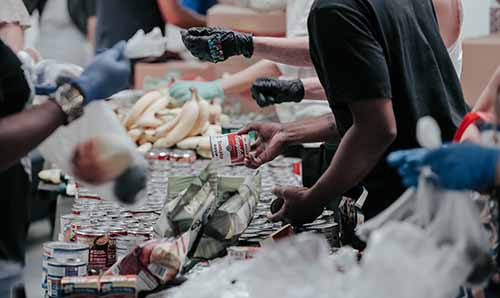The business of food poverty: Mapping relationships and strategies of key actors in an emerging field
In the aftermath of the Great Recession, food charities (e.g. food banks, pantry schemes, soup kitchens) have proliferated throughout the UK.

Estimates from a 2019 study reported that 14.2% of the UK adult population experienced some degree of food insecurity (Pool and Dooris 2021).
The COVID-19 crisis has exacerbated this, with major UK food charities reporting unprecedented levels of demand (e.g. IFAN, 2020; Oncini, 2021).
Concurrently, the environmental impact of food waste has risen on public agendas.
In response, many food sector businesses have implemented organisational and logistical innovations to redistribute surplus food.
This has become a fundamental supply channel for many food charities and resulted in new relationships between food charities and corporate actors (e.g. large-scale retailers, food producers, banks).
The shape of these alliances is likely to have profound implications for how food security is addressed in the UK.
Yet little is known about the role of corporate actors in food aid provision or the implications of their strategies and interests concerning ‘food waste’ for the charitable food sector.
This project will examine the webs of influence, interests, and tensions between food charities, food surplus distributors, and their corporate partners.
References
- IFAN. (2020). Independent food bank emergency food parcel distribution in the UK Comparing February–May 2019 with February–May 2020. Accessed 20 Oct 2021.
- Oncini, F. (2021). Food support provision in COVID-19 times: a mixed method study based in Greater Manchester. Agriculture and human values, 1-13.
- Pool, U., & Dooris, M. (2021). Prevalence of food security in the UK measured by the Food Insecurity Experience Scale. Journal of Public Health, online first.
People
- Dr Jo Mylan
- Dr Filippo Oncini
